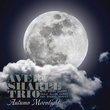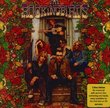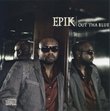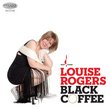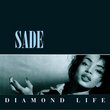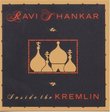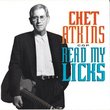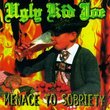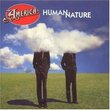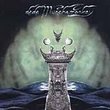| All Artists: Torsten Rasch Title: Mein Herz Brennt Members Wishing: 1 Total Copies: 0 Release Date: 10/27/2003 Album Type: Super Audio CD - DSD, Import Genres: International Music, Metal Styles: Europe, Continental Europe Number of Discs: 1 SwapaCD Credits: 1 Other Editions: Mein Herz Brennt UPCs: 028947615248, 0028947611691, 028947611707 |
Search - Torsten Rasch :: Mein Herz Brennt
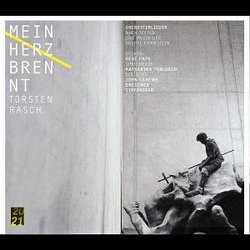 | Torsten Rasch Mein Herz Brennt Genres: International Music, Metal
|
Larger Image |
CD DetailsSimilar CDs
Similarly Requested CDs
|
CD ReviewsModern masterpiece Wing J. Flanagan | Orlando, Florida United States | 11/29/2003 (5 out of 5 stars) "Composers have, for years now, taken to adapting the work of rock bands into fully symphonic scores - with varying degrees of success. The best that can be said of most of them (even top-notch efforts, such as the London Symphony Orchestra's adaptations of Pink Floyd songs in "Us and Them: Symphonic Pink Floyd") is that they sound, well, nice. Nice and safe and thoroughly background-like. Without exactly descending to the level of muzak, these arrangements nonetheless easily sink into the background, half-heard during dinner or polite conversation.But German composer Torsten Rasch, working with the Dresden Philharmonic, has done something decidedly beyond mere arrangement, and way beyond transcription, with his orchestral treatment of Rammstein's music. While influences from Wagner to Schoenberg are readily identifiable, his music has the immediacy of an open wound. It's not safe; it's arresting, urgent and dangerous. It gets under your skin in a way that is both lyrical and unsettling. Love or hate it, this music demands your attention, and will not leave you indifferent. Don't think you'll escape Till Lindemann's dark, insinuating lyrics, either. They are the center of "Mein Herz Brennt" which is, after all, a song cycle. It's difficult to imagine his words sung operatically, but they are, by bass Rene Pape. His vocal interpretations lend a Pucciniesque grandeur to songs that could easily be arias from dark, romantic operas of the early Modern period. What operas they would be, if they existed! His singing of the the titular "Mein Herz Brennt" ("My Heart Burns"), which occurs about halfway through the CD, calls to mind the quasi-occult villain of Offenbach's unfinished masterpiece "Tales of Hoffman" -- a kind of evil sandman who brings nightmares. There is sadness and nobility in both his reading and Rasch's exquisite use of orchestral coloring. Pity him, it says, for the nightmares he brings are part of his nature, and they are as beautiful as they are terrifying -- which pretty much sums up this whole work.Pape is accompanied by actress Katharina Thalbach, whose guttural, Gollum-like vocal styling in "Sehnsucht" ("Longing"), "Ich Will" ("I Want"), and "Alter Mann" ("Old Man") blur the piece into the realm of Performance Art. Hers is the voice of a demon or imp. Or perhaps the Id -- at once gleeful and tortured, in ecstasy and pain beyond mortal imagining. Her work in "Herzeleid" ("Heartbreak") is especially unnerving. Imagine the demon-posessed girl from The Exorcist singing one of those heartbroken-heroine-dying-of-consumption arias from any number of grand operas and you get the idea. The orchestration in that song is equally edgy, like an undiscovered section of Stravinsky's "Rite of Spring"."Mein Herz Brennt" is not without consonance, as well. "Seeman" ("Sailor") , "Nebel" ("Mist") , and "Alter Mann" all contain passages of aching beauty, soaring above the pensive tone clusters and changing meters. With all of the tension and dissonance, these sonorous phrases break through the dark clouds like brilliant shafts of sunlight.The most unusual orchestration comes in "Sehnsucht" which, like Rammstein's original version, is heavily seasoned with ethnic Middle-Eastern tonalities. It has a quiet, erotic splendor that moves from the physical to the metaphysical throughout its seven minutes.Finally, the CD wraps up with "Stimmen aus dem Kissen" ("Voices from the pillow" - a phrase from the lyrics of "Mein Herz Brennt"), a purely orchestral work created from numerous motifs and melodies that appear throughout Rammstein's oeuvre. It's an eleven-minute tone-poem that makes for great listening by itself. It's not dinner music either, but rather a dramatic, animated concert piece vaguely reminiscent of Prokofiev's more serious works.Which is not to say that this song cycle is unoriginal. In fact, it represents the possible stirrings of a new genre of modern orchestral music -- one which combines traditional scoring techniques with contemporary sensibilities in the same way that Rammstein's own brand of Industrial Metal combines old-school, danceable rock-and-roll with hip-hop inspired samples and metaphorical, socially-aware lyrics. You have to have pretty eclectic musical tastes to listen fervently to both heavy metal and traditional symphonic music. My own tastes run the gamut from Albinoni to Zappa. If you are of similar temperament, this disc is for you." Mind Boggling: Pape and Rasch Tackle Rammstein G P Padillo | Portland, ME United States | 01/21/2005 (5 out of 5 stars) "I just finished listening to Rene Pape in Torsten Rasch's Orchestral Song Cycle "Mein Herz Brennt" and have yet again experienced another one of those "wow!" moments. I'm not certain how many classical music fans are familiar with the German rock group "Rammstein" - (I absolutely love these post-Industrial Gothic metal freaks), but Herr Rasch has taken 9 of their songs and given them an uber early 20th century German expressionistic treatment and they are mind blowingly beautiful. The best description I can think of to describe them is to say it sounds as though Berg were orchestrated by Mahler (and yes, I mean it that way around). The songs are enormous in scope and sound with a certain Mahlerian/Schoenbergian/Bergian shimmer about them that alternates begween a dark intensity and and mysterious lightness (though less of the latter). From the first song, "Mutter" I wasn't fully prepared as Pape's absolutely gorgeous voice poured forth like liquid gold through a wide range of sound and emotions pure and gloriously free. Rasch gives more than a nod to Wozzeck throughout the cycle - yet his individual musical language still feels highly original and, for the most part, retains the feel of Rammstein's original (the melodic lines, even when slowed way down remain, mostly intact). By the end of the cycle all I could think of (besides what a great vehicle this new work is for this singer and hopefully for others as well) was: when will Pape take on Wozzeck? Listening to this, there's not a doubt in my mind that he could - and be amazing (as well as reach some of those notes that some Baritone Wozzecks often have difficulty with). Some of the songs alternate between Pape's gorgeous vocalism and actress Katharina Thalbach's ("The Tin Drum") nasaly, but effective 21st century Lotte Lenya-ish stridency. John Carewe leads the Dresdner Sinfoniker and everybody involved with this project does their finest, most intense work bringing forward a new, exciting orchestral song cycle that rightfully deserves to be programmed by the world's great orchestras. (The Dresden is billed as the only major symphony orchestra which plays contemporary music exclusively and is made up of leading players from most of the German as well as many other leading European orchestras. They sound amazing). Listening through the entire cycle one can't help but experience some sort of catharsis. Very highly recommended. " Good....but not up to par... J. Andre | CO, USA | 07/08/2005 (3 out of 5 stars) "With the trail of pre recorded tracks and ornate harmonys left behind by everyones favorite german industrial band from their use of the berlin orchestra and the spain national chior, it would seem simple to produce a classical album inspired by their works; but with the beauty of simplicity someone must always try to complicate it. The Composition of the music is georgeous, it is just too bad there was singing. The "Artist" soloists try to embilish their talents with unnessary rifts and "creative" harmonies. The Melodie is gone, completely removed from the orchestration; I assume for the purpose of allowing it for the singers, but they preceded to forget about it also. It is fairly similar to what some call hard opera. As always sample the music and come to your own conclusion, my conclusion is mearly one opinion of many."
|

 Track Listings (9) - Disc #1
Track Listings (9) - Disc #1